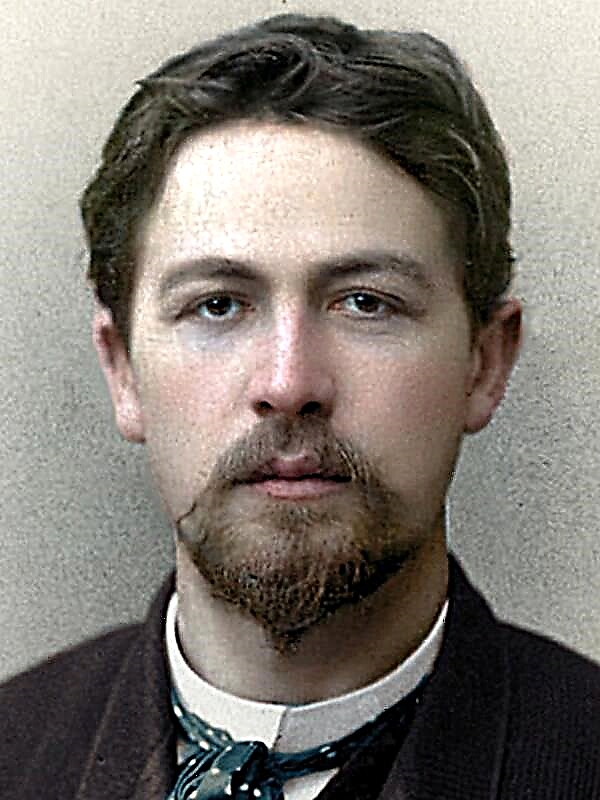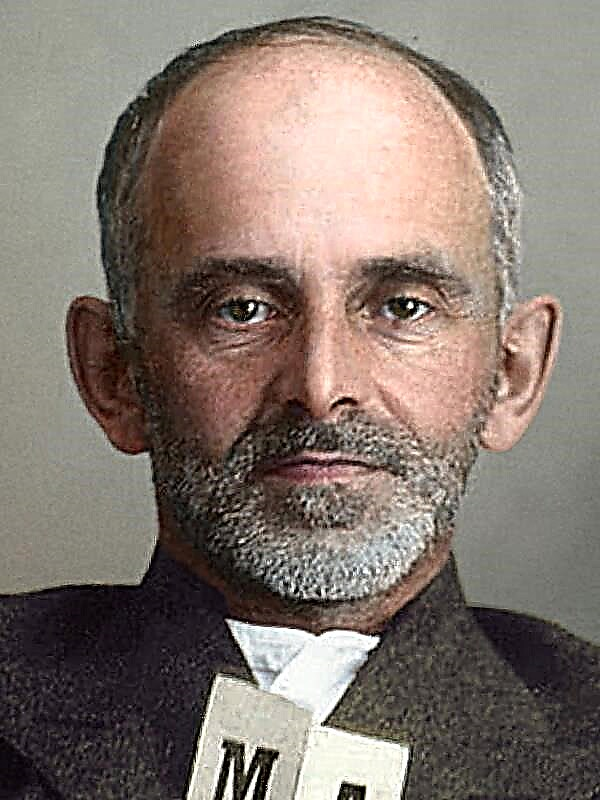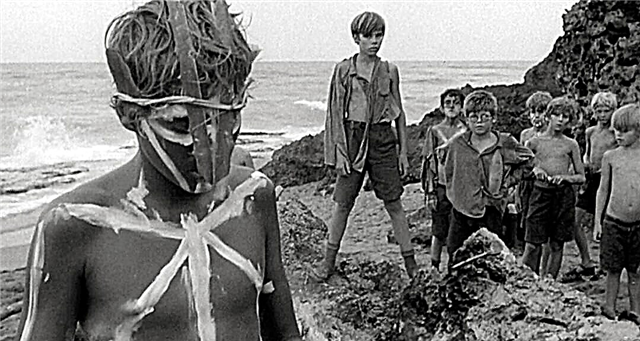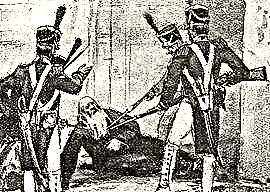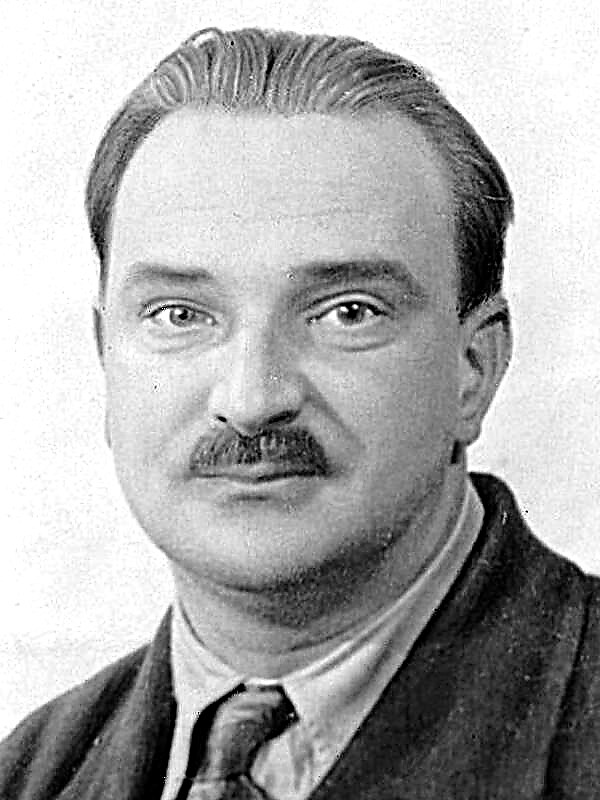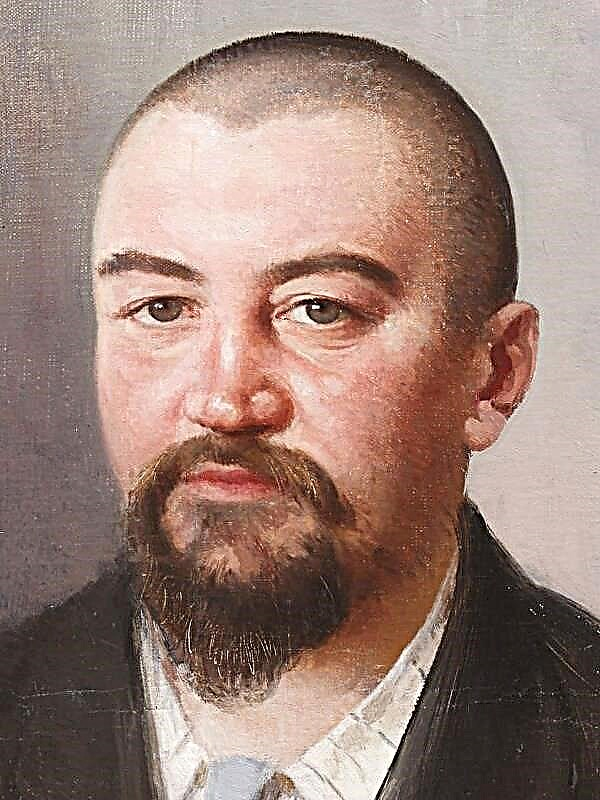The action takes place in Germany, during the Second World War. The protagonist is the teenager Sergei, who was stolen in Germany, in arbaytla-gery. The story covers about three years of the hero's life. Non-human conditions of existence are described. The Arbeit camp is better than the concentration camp — the extermination camp, but only because people are killed here gradually, tormenting with overwork, hunger, beatings and bullying. Prisoners of arbeit camps wear the “OST” badge on their clothes.
The central event of the first chapters of the novel is the escape of Sergey and his friend Valka. First, a prison is described in which adolescents caught after escaping fall. During a search, the protagonist finds a dagger, but the Germans somehow forget about it. The guys are beaten and after several days in prison, in which they get acquainted with some Russian prisoners of war, are again sent to the same camp. On the one hand, Sergey is now more respected by the camps, on the other - returning to the camp is worse than death. The author (the narration is conducted in the first person) reflects on how much love was needed for a teenager, how he was looking for it, and how the German fascist machine did not allow him to be at least someone loved. Every day for fifteen hours, children, hungry, freezing, forced to work - toss a heavy wagon with ore. They are being watched by German farbighter Paul. The group in which the protagonist works consists of two Belarusians - inhibited Andriy and arrogant Volodya - and two Poles - strong Stefan and the silly Bronislav. Teenagers hate their master, try to annoy him if possible. The most important thing is to be careful, as for the slightest reason you can get a charge, and then they will face not only severe beatings, but also a concentration camp.
Once the Gestapo commission arrives at the camp. Children see their flight attendants in the form of stormtroopers. The author discusses the nature of the Germans, their responsibility for fascism. The hero has a stolen bag of potatoes hidden in the locker, which he was given to the roommates for storage, and in the bag is the same dagger. Sergei understands that if all this is found, then he will most likely be shot. Distraught with horror, he tries to hide. However, the Germans during the search pass a cabinet with potatoes. So once again he manages to avoid death. At the same time, by the way, a certain Esman is also hiding in the camp - a strange man of unknown nationality, a polyglot hiding from the Germans in a Russian arbeitlager. The prisoners hide him, try to help with food. Sergey often talks to him. After the search Esman noticed a camp translator on the stairs. He immediately informs him, Esman is taken away. A confrontation is arranged. Esman betrays no one. The whole camp is punished with food deprivation for a day. For years of a starving camp, where bread is the main value, this is a real tragedy.
After the escape, Sergei was transferred to work in a foundry, at a military factory. With each day of overwork, the hero's hatred of the Germans is growing. He is so weak that physically he can’t oppose anything to them, but his strength is that “I saw. It was not supposed to die. My knowledge was tens, hundreds of times more important than myself ... I had to tell as soon as possible, pass on my knowledge to everyone. ”
A normal life is going on in the camp: people change clothes for bread, try to find cigarettes, play cards. The author observes the camp characters - they describe: Leva-krank (one of the camp start-ups, too arrogant), Nikolai Sokolik (embittered card player), Moskvich (kind guy who does not know how and does not want to “put himself in the camp society), Pavka- hairdresser, Papasha Zelinsky (a blind-eyed intellectual trying to write memories), Ivan Ignatievich (a thorough working man who in the finale kills a German with a hammer) and others. Each has his own story. After the escape, the hero, unable to endure such a life anymore, tries to “bark” - inflict some serious injury on himself so that he is deemed unfit for work. Sergei puts his hand to a red-hot oven, gets a severe burn, but he is not even allowed to see a doctor. However, the next day he was beaten half to death by the master in the workshop, and only then he was left in the hut. Typhoid epidemic begins in the camp. Sergey falls into a typhoid hut. Here teenagers are cared for by the impregnable and beloved doctor Sofya Alekseevna. New policemen appear in the camp - Fritz, Wart, Broken-Poloman Wings. Sofya Alekseevna is trying to detain children in the hospital longer so that they do not need to go to work. Once, policemen burst into the hut, accuse the doctor of sabotage, brutally beat teenagers and send them all back to the camp. Sergei, however, comes to that time to that extreme degree of exhaustion, when a person is completely unable to do the hard work. He, along with a party of the same "krank" income, is sent to another camp.
In the new camp, in Langenberg, Sergey finds himself in another camp society. He is awkwardly greeted by a Russian elder: "Not a tenant." Here they work at a rolling mill; hunger is even stronger - the end of the war is nearing (the camps every now and then, by all indications, begin to understand this), and the Germans are not able to feed the Russian slaves. Once, however, one German who decided to have some fun puts a candy on the fence. The author says that when she, divided into five, was eaten, the children simply had a “shock, taste tragedy”.
As extremely exhausted, Sergei was transferred to the Volken-Born factory. Here the conditions are better; he works as an assistant roofer. From time to time he has the opportunity to shake the pear and eat half-rotten fruits. Once, for more than a year now, Sergei, who has been coughing violently, the factory director passes a pack of anti-asthma cigarettes.
In the new camp - new acquaintances. There are many Frenchmen, of which Jean and Marcel are attracting special attention of the hero; there are Russian prisoners of war - Vanyusha, Petrovich and Arkady, with whom I especially want to make friends with Sergei.
Indeed, he succeeds, and he helps Vanyusha steal German pistols and bring them to the camp. Once they, having got out of the camp, kill one German who could convey to them.
It is clearly felt that the war is coming to an end. An uprising is being prepared in the camp, prisoners in secret meetings are thinking about what to do, what “politically correct decision” they are required to make. On Sundays, Sergei and Vanyusha go to voluntary work - to see the city and get bread. During one of these sorties, they go quite far, which attracts the attention of the Germans. They are followed by a patrol. Only thanks to the confident behavior of Vanyusha during the search they do not notice the pistols. For Sergei Vanyush, he is a role model, he seeks his respect, but he does not appear to have full confidence. A few weeks before the end of the war, Vlasovites appeared in the camp, whom the Germans were trying to get rid of. Both Russians and Germans dislike them. The hero watches them with interest, hunted, betrayed and devoted.
The most important thing in the last weeks before the victory is the expectation of execution: there are rumors that the Germans will not leave anyone alive. It is for this case that weapons accumulate in the camp. In the spring of 1945, they already worked a little, prisoners spend a lot of time in a bomb shelter - the Allies bomb Germany. One night, the camp men try to execute the senior master. The prisoners and Sergei get out of the camp, reach his house, but the enterprise ends unsuccessfully.
A few days later, Americans come to the camp. Describes the "crazy Sundays of liberation." Invisible under the sun, fire cracked on the camp ground. A dry tree, etched by our breath, burned — sleepless camp men burned the bunkers pulled from the barracks. The empire was crumbling with a tank clang, and there was such silence that one could hear the sun shining. ”
Sergei and his friends make their way from the American zone of occupation to the east - to their own. They pass through the crowds of disarmed Germans, feeling their self-hatred. One night they almost get killed. The wanderings on American territory lasted until August 1945, until they were handed over to Russians near Magdeburg. “By the new, 1946, I was at home. He returned with the feeling that I know everything about life. However, it took me thirty years of life experience for me to be able to tell something about my main life experiences. ”



